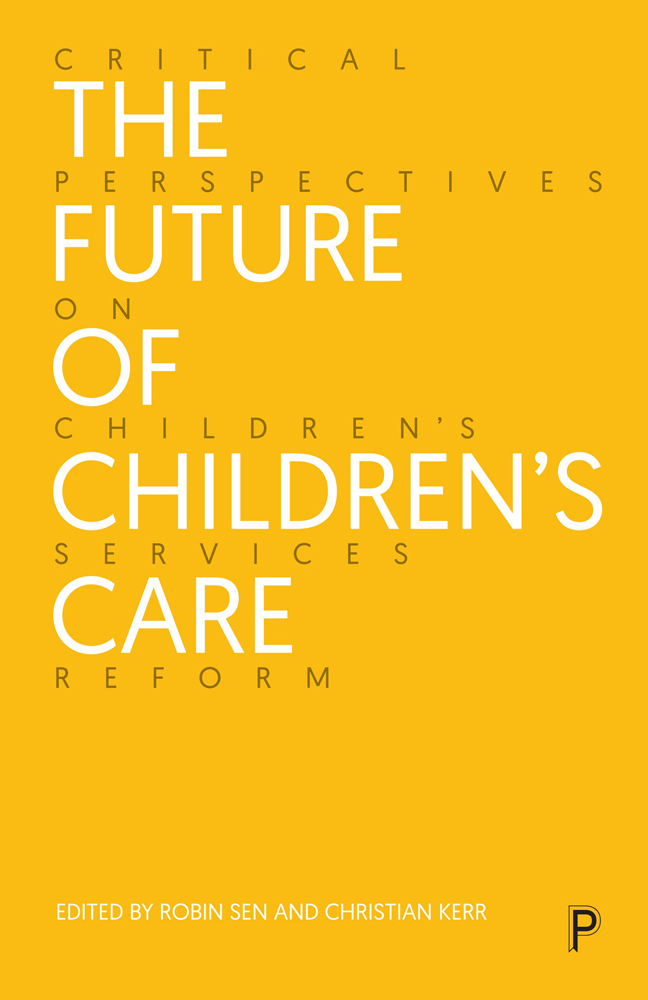Book contents
- Frontmatter
- Dedication
- Contents
- Notes on contributors
- Acknowledgements
- Foreword
- 1 Introduction: critical perspectives on children’s services reform
- 2 Where now? Children's rights in England into the 2020s
- 3 More of memes than schemes: networked propagation in children's social care
- 4 Reclaiming social work, the social work complex and issues of bias in children's services
- 5 Humane social work practice: a more parent friendly system? Hopes and challenges in the 2020s
- 6 Exploring and re-imagining children's services in England through a decolonial frame
- 7 Kinship care for England and Wales in the 2020s: assumptions, challenges and opportunities
- 8 If adoption is the answer, what was the question?
- 9 Caring for children and young people in state care in the 2020s
- 10 Protecting children: a social model for the 2020s
- 11 Conclusion: children's services reform looking back and forwards
- Index
10 - Protecting children: a social model for the 2020s
Published online by Cambridge University Press: 23 January 2024
- Frontmatter
- Dedication
- Contents
- Notes on contributors
- Acknowledgements
- Foreword
- 1 Introduction: critical perspectives on children’s services reform
- 2 Where now? Children's rights in England into the 2020s
- 3 More of memes than schemes: networked propagation in children's social care
- 4 Reclaiming social work, the social work complex and issues of bias in children's services
- 5 Humane social work practice: a more parent friendly system? Hopes and challenges in the 2020s
- 6 Exploring and re-imagining children's services in England through a decolonial frame
- 7 Kinship care for England and Wales in the 2020s: assumptions, challenges and opportunities
- 8 If adoption is the answer, what was the question?
- 9 Caring for children and young people in state care in the 2020s
- 10 Protecting children: a social model for the 2020s
- 11 Conclusion: children's services reform looking back and forwards
- Index
Summary
Introduction
Protecting Children: A Social Model was published in 2018. In this chapter we revisit some core arguments and critically interrogate these, in the light of the experience of COVID-19. Our conclusions are sobering as we reflect on what the pandemic revealed about the state, its responses and the deepening of patterns of power, wealth, inequality and exploitation (Davies et al, 2022). However, we also note that many of the core assumptions of the social model have been reinforced by what we have learned about our vulnerabilities and interdependencies during the pandemic, and we argue for the importance of engaging with the array of constituencies who are seeking to build more progressive futures.
Background
The social model of protecting children emerged from, and continues to be nourished by, those carving out spaces for resistance to old and harmful child protection policies and practices. Essentially, it challenged the following highly individualising narrative:
• The harms children and young people need protecting from are normally located within individual families and are due to acts of omission or commission by parents and/or other adult caretakers, with the assessment of intra-familial risks and strengths core business for professionals.
• These acts are normally understood through frames that focus on the role of individual choices or psychological and relational dynamics with considerations such as the socio-economic contexts in which families live largely screened out.
• Developing expert practice methodologies to change behaviours and choices is a key policy objective, particularly since 2010.
• Developing expert-led procedures, multi-agency work and professional expertise are all key to protecting children from harm.
In the social model we located our challenge to this narrative within wider understandings of how notions of responsibility and causation have shifted over the last decades, thus placing developments within child protection within a broader economic and societal canvas. We noted the shift in discourses from explanations for social problems that refer to history, backgrounds and contexts, to ones which discount these, replacing understanding with moral judgment of individuals and correction of their behaviour:
Individuals are thus held largely or wholly responsible for their fortunes. If their pasts have been difficult, they can and must take steps to free themselves from their pasts from now on. This individualistic understanding of society fits well with common sense thought.
- Type
- Chapter
- Information
- The Future of Children's CareCritical Perspectives on Children's Services Reform, pp. 178 - 193Publisher: Bristol University PressPrint publication year: 2023



